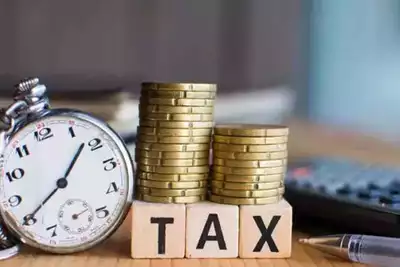Income Tax: Taxpayers whose income is up to Rs 50 lakh as per Income Tax Return (ITR) and the aggregate amount of variation is less than Rs 10 lakh can file an application under this scheme. Experts say that the Income Tax Department had notified this scheme in 2022 itself. Now it has enabled it
Income Tax: The Central Board of Direct Taxes (CBDT) introduced the e-Dispute Resolution Scheme on August 30. Earlier, the Income Tax Department had notified this scheme in 2022. Its purpose is to resolve tax-related dispute issues quickly. Mayank Mohanka, founder of TaxAaram.com said the e-Dispute Resolution Scheme was notified in 2022. Now the CBDT has started the facility of electronic filing of online applications. Now the application can be filed through the prescribed Form 34BC through the Income Tax e-filing portal.
Who can file the application?
Taxpayers whose income as per the Income Tax Return (ITR) is up to Rs 50 lakh and the aggregate amount of variations is less than Rs 10 lakh can file an application under this scheme. Mohanka said, “Any person, including salaried taxpayers, who fulfils the prescribed conditions can file an application under the scheme. For example, salaried taxpayers having income (as per ITR) up to Rs 50 lakh and having received an assessment order with disallowances up to Rs 10 lakh in respect of HRA claim or section 80C claim, can settle their tax case under the scheme and avoid penalty under section 270A in case of under-reporting or mis-reporting of income.”
What are the conditions to avail the scheme?
There are some other conditions as well. For example, the taxpayer should not be facing any detention under the Conservation of Foreign Exchange and Prevention of Smuggling Activities Act, 1974. However, this restriction will not apply if such order has been set aside by the court. Apart from this, if the taxpayer has been convicted under the Unlawful Activities (Prevention) Act, 1967, Narcotics Drugs and Psychotropic Substances Act, 1985, Prohibition of Benami Transactions Act, 1988, Prevention of Corruption Act, 1988 (49 of 1988) and Prevention of Money Laundering Act, 2002, then he cannot file an application under this scheme.
How will the taxpayers benefit from this scheme?
Mohanka said that under this scheme, the principal of income tax and its interest has to be paid. But, the penalty imposed on the taxpayers can be reduced or waived. The Dispute Resolution Committee will take a decision in this regard. In a way, this is a kind of amnesty scheme on the lines of ‘Vivaad se Vishwas’. But, there is no deadline for filing the application in this. This scheme is different in that the penalty can be reduced or waived, but the interest demand sent to the taxpayers cannot be waived.
What is the process of filing an application?
The Income Tax Department has issued an FAQ (Frequently Asked Question) in this regard. According to this, taxpayers will have to go to the e-DRC (Dispute Resolution Committee). This committee has the right to reduce the penalty or waive the penalty after the payment of tax. Its purpose is to resolve disputed issues quickly. The taxpayer can access the e-DRS module by logging in to the tax portal of the Income Tax Department. After logging in, he will have to select e-file on the dashboard. After that, he will have to go to Income Tax Forms. Then File Income Tax Forms will have to be selected.
Related Articles-
Retirement Planning: Invest in PPF to get good return at retirement, know how


